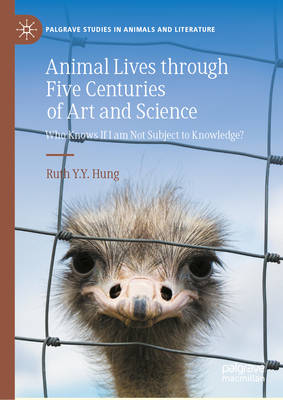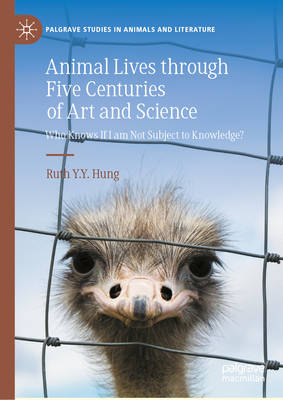
- Afhalen na 1 uur in een winkel met voorraad
- Gratis thuislevering in België vanaf € 30
- Ruim aanbod met 7 miljoen producten
- Afhalen na 1 uur in een winkel met voorraad
- Gratis thuislevering in België vanaf € 30
- Ruim aanbod met 7 miljoen producten
Zoeken
Animal Lives Through Five Centuries of Art and Science
Who Knows If I Am Not Subject to Knowledge?
Ruth Y Y Hung
€ 106,95
+ 213 punten
Omschrijving
Animal Lives through Five Centuries of Art and Science confronts a deep paradox: humanity's greatest achievements in art, science, and philosophy have often relied on the systematic subjugation of animals. This pioneering interdisciplinary work traces how Western knowledge systems have turned animal suffering into spectacle and commodity, from Renaissance anatomy theaters where Leonardo da Vinci painted ermines as symbols of purity while their real-world counterparts were skinned for aristocratic fashion, to today's genetically engineered GloFish. Through six compelling case studies--including the extinction of the quagga, Victorian vivisection debates, and industrial farming--Ruth Y.Y. Hung shows how the same imagination fueling cultural progress has also been used to justify domination. Drawing on thinkers from Erich Auerbach to Donna Haraway, the book offers a radical rethinking of knowledge itself. It reveals that animals have only been understood through frameworks that either aestheticize or erase their lives. Yet, amid these histories of violence, moments of resistance appear: the defiant stare of a vivisected dog, Indigenous cosmologies honoring ecological kinship, and Buddhist deer challenging human-centered views. Hung advocates for "interspecies reimagination," urging a shift from extraction to reciprocity, and calls on readers to develop a new ethics where knowledge serves rather than controls life.
Specificaties
Betrokkenen
- Auteur(s):
- Uitgeverij:
Inhoud
- Aantal bladzijden:
- 301
- Taal:
- Engels
- Reeks:
Eigenschappen
- Productcode (EAN):
- 9783032059765
- Verschijningsdatum:
- 21/01/2026
- Uitvoering:
- Hardcover
- Formaat:
- Genaaid
- Afmetingen:
- 148 mm x 210 mm
- Gewicht:
- 530 g

Alleen bij Standaard Boekhandel
+ 213 punten op je klantenkaart van Standaard Boekhandel
Beoordelingen
We publiceren alleen reviews die voldoen aan de voorwaarden voor reviews. Bekijk onze voorwaarden voor reviews.







